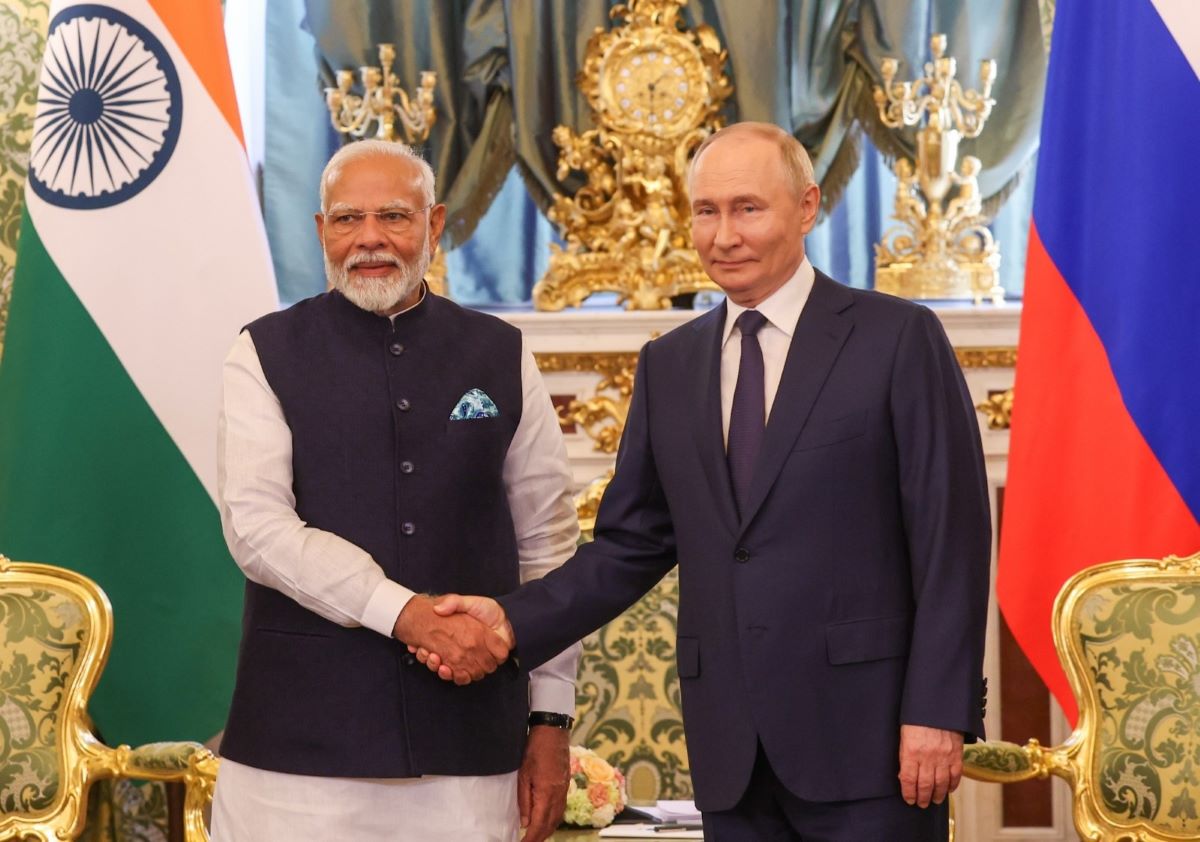In an article on RT, Dr. Kirill Babaev, Russian Academy of Sciences, Professor at the Financial University and Vice Chairman of the Presidium of the National Committee for BRICS Studies, said that Russia has been strongly developing relations with Asian countries, asserting its leadership role in the global community, especially in the past three years when Moscow was heavily sanctioned by the West - leading many to describe that a “new iron curtain” had appeared between Russia and Western countries.
BRICS: Strategic breakthrough
The BRICS summit in Kazan was a historic event, bringing together 22 heads of state from 36 countries. It was not only a testament to Russia’s growing influence in the global South, but also a powerful message to the West: all attempts to isolate Russia have failed.
BRICS, under Moscow’s push, is becoming the leading non-Western force. The US administration under President Donald Trump even considers BRICS a strategic rival, threatening to impose 100% tariffs if the bloc issues a common currency.
Bilateral Relations: India and ASEAN
Russia-India relations have reached new heights over the past year. Prime Minister Narendra Modi’s visit to Moscow in July marked a major turning point, making India Russia’s largest energy partner in South Asia. The relationship also lays the groundwork for the implementation of the North-South Transport Corridor, a strategic economic project.

In Southeast Asia, Russia made a breakthrough by bringing Indonesia, Thailand and Malaysia into BRICS partnership. However, to consolidate its influence in the region, Russia needs to further promote economic success - a field that still has many challenges.
Promoting relations with Asian countries
Russia-Iran relations have reached a milestone with the signing of a comprehensive cooperation agreement, including defense cooperation. Meanwhile, North Korea has become a comprehensive strategic partner of Russia following the agreement in November.
China will continue to be Russia's leading partner in Asia. The number of Russian tourists to China will increase 2.5 times in 2024, while the number of Chinese tourists to Russia will increase 7 times. The strategic partnership between the two countries is not limited to politics and economics, but also extends to culture, tourism and people-to-people exchanges.
Forming personal relationships with leaders of key Asian countries is clearly becoming a trend in the foreign policy strategy of Russian President Vladimir Putin and it was chosen very well, taking into account the specifics of Eastern culture.
For example, Uzbek experts say the good relations between Russian and Uzbek leaders have become a key argument in favor of the Rosatom project, which is opposed by the pro-Western faction in the government in Tashkent.
Another testament to the importance of the “personal factor” is the rapprochement with Malaysia, where Prime Minister Anwar Ibrahim actively participated in the Eastern Economic Forum in Russia in September.
2024 is not only a successful year, but also an important stepping stone for Russia to shape its leadership role in the new world order, where Asia is at the center.







